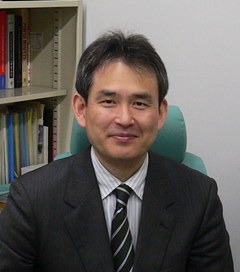Prof. Tsunenobu Kimoto, Kyoto University

Short biography: Tsunenobu Kimoto received the B.E. and M.E. degrees in Electrical Engineering from Kyoto University, Japan, in 1986 and 1988, respectively. He joined Sumitomo Electric Industries, LTD in 1988. In 1990, he started his academic career as a Research Associate at Kyoto University, and received the Ph.D. degree from Kyoto University in 1996, based on his work on silicon carbide (SiC). From 1996 to 1997, he was a visiting scientist at Linköping University, Sweden, and he is currently a Professor at Department of Electronic Science and Engineering, Kyoto University. Since 2009, he is also a core researcher of the Funding Program for World-Leading Innovative R&D on Science and Technology (FIRST Program) on SiC. His main research activity includes SiC, GaN-based power devices, nano-scale Si devices, and materials for ReRAM.
Title: Ultrahigh-Voltage SiC Devices for Future Power Infrastructure
Abstract: High-efficiency electric power conversion is an essential technology for energy saving. The efficiency of power converters/inverters strongly relies on the performance of power semiconductor devices employed in the power electronic systems. Silicon carbide (SiC) is a newly-emerging wide bandgap semiconductor, by which high-voltage, low-loss power devices can be realized owing to its superior properties. It is expected that SiC unipolar devices will replace Si unipolar/bipolar devices in the blocking-voltage range from 300 V to about 4500 V. For ultrahigh-voltage applications above 4500 V, SiC bipolar devices will be attractive. In this talk, recent progress in ultrahigh-voltage SiC power devices is reviewed. In particular, challenges for ultrahigh-voltage (> 20 kV) PiN diodes and power transistors are presented.